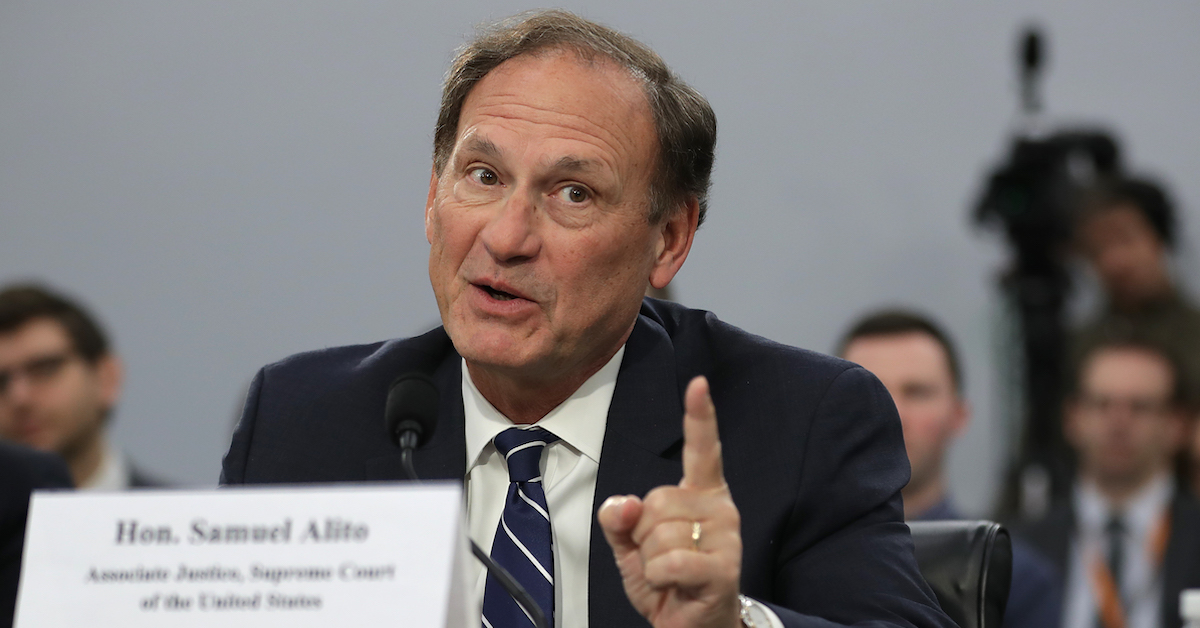
Chip Somodevilla/Getty Images
Supreme Court Justice Samuel Alito denied allegations he was behind leaking a 2014 Supreme Court ruling, which has many critics now branding him as the one who leaked the decision to overturn Roe v. Wade.
Former anti-abortion activist Rev. Rob Schenck claimed through interviews with the New York Times and a letter sent to Chief Justice John Roberts that he was told the outcome of the Burwell v. Hobby Lobby weeks before it became public in June 2014.
According to the report by Jodi Kantor and Jo Becker, Schenck prepared a public relations campaign ahead of the ruling and he even tipped off the president of Hobby Lobby, the company that would win the case.
According to the Times:
In early June 2014, an Ohio couple who were Mr. Schenck’s star donors shared a meal with Justice Alito and his wife, Martha-Ann. A day later, Gayle Wright, one of the pair, contacted Mr. Schenck, according to an email reviewed by The Times. “Rob, if you want some interesting news please call. No emails,” she wrote.
Mr. Schenck said Mrs. Wright told him that the decision would be favorable to Hobby Lobby, and that Justice Alito had written the majority opinion. Three weeks later, that’s exactly what happened. The court ruled, in a 5-4 vote, that requiring family-owned corporations to pay for insurance covering contraception violated their religious freedoms.
As Law & Crime’s Aaron Keller notes, Alito vehemently denied the accusation that he leaked a ruling as “completely false” in a statement.
Critics weren’t buying it as Twitter became full to the brim with critics and numerous liberal pundits expressing shock at the revelation, and some even calling for Alito to be removed from the bench.
“This is really really shocking stuff. Also seems like someone is definitely outright lying and one of the people who may be just outright lying is Alito,” MSNBC’s Chris Hayes tweeted in reaction.
“Alito is a disgrace to this nation and as dangerous as any terrorist.
He must be forced off the Court,” Keith Olbermann wrote.
There was no shortage of people now completely convinced Alito
was the Dobbs leaker
I’m starting to worry that Samuel Alito may be an
untrustworthy and immoral person.— Ian Millhiser (@imillhiser) November 19, 2022




 \
\
